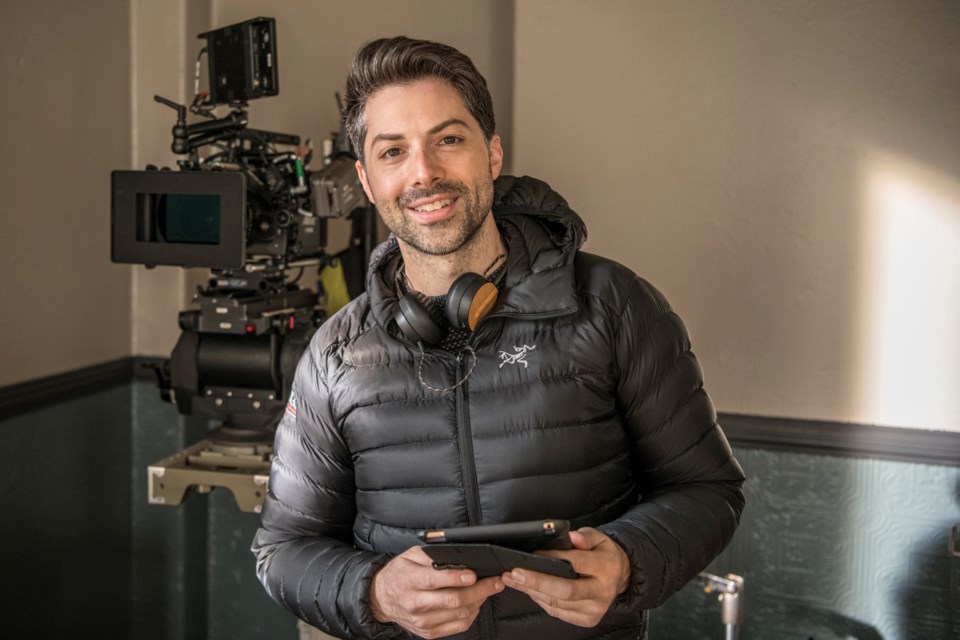The irony of filming a Heritage Minute about the lifesaving discovery of insulin, during a global pandemic, wasn’t lost on Mark Ratzlaff.
“It was something we were feeling in our lives, and just being 100 years apart, waiting...in our case for the vaccine and (in the early 1920s), the life-saving treatment of insulin,” he said.
“Back then, with diabetes, there was a certain point where, once you went into the hospital, families didn’t count on their loved ones coming home… (Because of COVID-19), you become hyper-aware of just how paralyzing a medical issue like this can be.”
Ratzlaff – who was born and raised in Richmond – wrote and produced the one-minute video, the Discovery of Insulin, with his wife Nimisha Mukerji, through their company Shotglass Productions in partnership with Historica Canada.
The short – released on May 17 to commemorate the 100th anniversary of the discovery – is the latest Heritage Minute in Historica Canada’s ongoing series, which showcases some of the country’s greatest achievements and the people behind them.
Unlike other Heritage Minutes, which Ratzlaff said often focus on a single perspective, he was faced with the challenge of weaving together the perspectives of both the scientists behind the research and ordinary people impacted by the disease.
“It really was like an ensemble piece – there were quite a few key players involved in it,” said Ratzlaff. “So really, if you took one of them out of it, it wouldn’t have worked.”
The short begins in late 1921 when 13-year-old Leonard Thompson is admitted to Toronto General Hospital for his Type 1 diabetes. As his health deteriorates, the Heritage Minute follows four scientists at the University of Toronto – Frederick Banting, Charles Best, J.J.R Macleod and James Collip – racing to develop the life-saving treatment of insulin.
Thompson was the first patient to receive successful injections, and within 24 hours his Type 1 diabetes symptoms had all but vanished.
“For us we knew that seeing the patient side of the story was important to understand, what this liquid in the lab had the potential to do,” said Ratzlaff.
Historica Canada sent “huge packages of material and references” on the discovery, to help Ratzlaff and Mukerji write a factual script, which was also reviewed by a group of experts on the subject.
The script was written by the end of 2020, but the rest of the production, including casting, and sorting out historically accurate costumes and props (both also vetted by the experts), was pulled together on a tight schedule – about five to six weeks – as it was uncertain whether filming would still happen with COVID-19.
The Heritage Minute was filmed in February at Riverview Hospital in Coquitlam, rather than Toronto due to COVID-19, said Ratzlaff.
The English narration at the end of the Heritage Minute was provided by Canadian actor Victor Garber, and the French end narration by athlete and motivational speaker Sébastien Sasseville, both of whom have been diagnosed with Type 1 diabetes.
The Discovery of Insulin is the 97th Heritage Minute in Historica Canada’s series, which has been ongoing since 1991.
“I think there’s maybe a sort of national discomfort with celebrating our achievements,” Ratzlaff said. “But I think it’s important to just take that minute and actually recognize some of the huge contributions we’ve made to our own communities and in this case (of insulin), to the world.”



